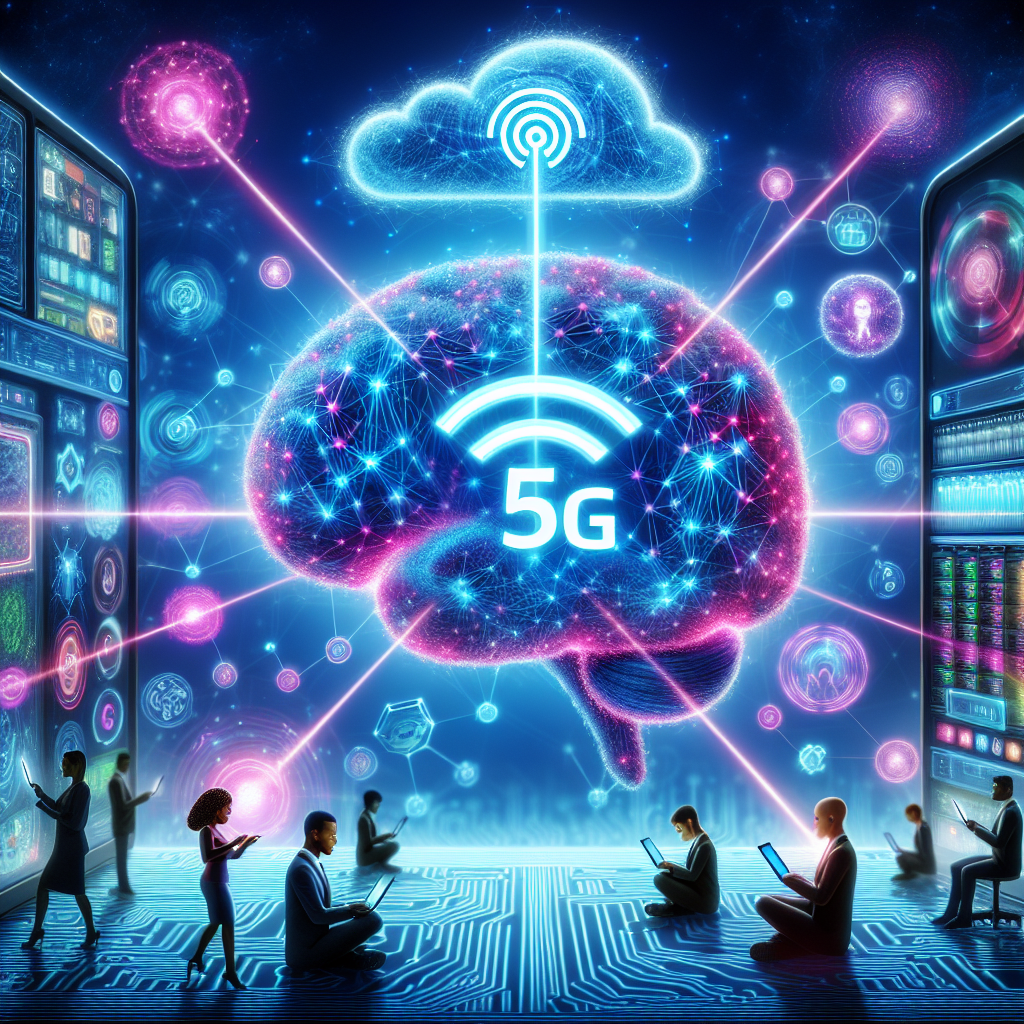In recent years, there has been a significant shift towards the integration of Artificial Intelligence (AI) in various industries. One area where AI is making a major impact is in the telecommunications sector, particularly in the development and deployment of 5G technology. The combination of AI and 5G is revolutionizing the way we connect, communicate, and interact with the world around us.
Artificial Intelligence, often referred to as AI, is the simulation of human intelligence processes by machines, especially computer systems. This technology enables machines to carry out tasks that typically require human intelligence, such as visual perception, speech recognition, decision-making, and language translation. AI has the potential to drastically improve the efficiency and effectiveness of various processes across different industries.
5G technology, on the other hand, is the fifth generation of wireless communication networks. It offers significantly faster data speeds, lower latency, and increased network capacity compared to its predecessor, 4G LTE. 5G technology has the potential to transform the way we use mobile devices, enabling real-time communication and facilitating the development of innovative applications and services.
The integration of AI and 5G technology is a game-changer for the telecommunications industry. AI-powered applications and services are making it possible to optimize and automate network management, improve data speeds, enhance security measures, and enable new and innovative services. Let’s take a closer look at how AI is revolutionizing 5G technology.
1. Network Management and Optimization
AI algorithms can analyze vast amounts of data in real-time, enabling network operators to optimize network performance, predict and prevent potential issues, and automate routine maintenance tasks. By leveraging AI, network operators can enhance the overall user experience by ensuring consistent and reliable connectivity, reducing downtime, and minimizing latency. This is particularly crucial in the context of 5G technology, where high data speeds and low latency are essential requirements.
2. Enhanced Data Speeds and Performance
AI can help improve data speeds and overall network performance by optimizing the allocation of resources, managing network traffic efficiently, and reducing interference. By analyzing data patterns and user behavior, AI algorithms can dynamically adjust network parameters to ensure optimal performance in real-time. This results in faster data speeds, reduced latency, and an overall better user experience.
3. Security Measures and Threat Detection
With the proliferation of connected devices and the increasing volume of data being transmitted across networks, cybersecurity has become a top priority for network operators. AI-powered security solutions can proactively detect and prevent cyber threats, identify anomalies in network traffic, and respond to security incidents in real-time. By leveraging AI, network operators can enhance their security measures and protect sensitive data from malicious actors.
4. Predictive Maintenance and Fault Detection
AI algorithms can analyze historical data, identify patterns, and predict potential network failures before they occur. By implementing predictive maintenance solutions, network operators can proactively address issues, reduce downtime, and minimize the impact of network outages on users. AI-powered fault detection systems can also automatically diagnose and troubleshoot network issues, enabling faster resolution and improved network reliability.
5. Innovative Services and Applications
The combination of AI and 5G technology opens up a world of possibilities for innovative services and applications. From augmented reality and virtual reality experiences to smart cities and autonomous vehicles, AI-powered applications can leverage the high data speeds and low latency of 5G networks to deliver immersive and interactive experiences. By enabling real-time communication and data processing, AI is driving the development of cutting-edge services that enhance our daily lives.
FAQs:
Q: How is AI used in 5G technology?
A: AI is used in 5G technology to optimize network management, enhance data speeds and performance, improve security measures, enable predictive maintenance, and support the development of innovative services and applications.
Q: What are the benefits of integrating AI in 5G technology?
A: The integration of AI in 5G technology offers various benefits, including improved network performance, faster data speeds, enhanced security measures, predictive maintenance, and the development of innovative services and applications.
Q: How does AI enhance network management in 5G technology?
A: AI algorithms analyze vast amounts of data in real-time to optimize network performance, predict and prevent potential issues, automate routine maintenance tasks, and ensure consistent and reliable connectivity.
Q: How does AI improve data speeds and performance in 5G technology?
A: AI algorithms optimize the allocation of resources, manage network traffic efficiently, reduce interference, and adjust network parameters dynamically to improve data speeds, reduce latency, and enhance overall network performance.
Q: What role does AI play in enhancing security measures in 5G technology?
A: AI-powered security solutions proactively detect and prevent cyber threats, identify anomalies in network traffic, respond to security incidents in real-time, and protect sensitive data from malicious actors.
In conclusion, the integration of Artificial Intelligence in 5G technology is transforming the telecommunications industry by enhancing network management, improving data speeds and performance, strengthening security measures, enabling predictive maintenance, and supporting the development of innovative services and applications. The combination of AI and 5G is revolutionizing the way we connect, communicate, and interact with the world around us, paving the way for a more connected and intelligent future.
